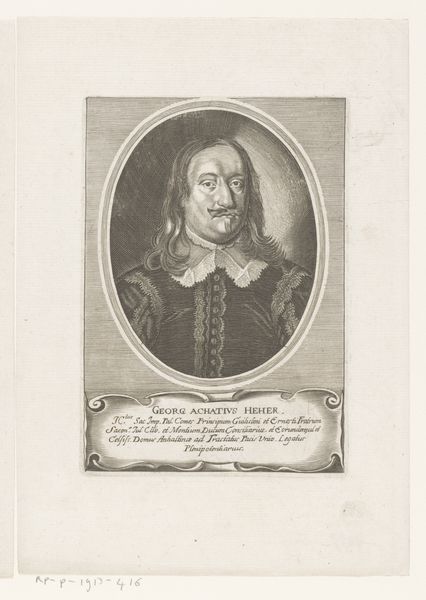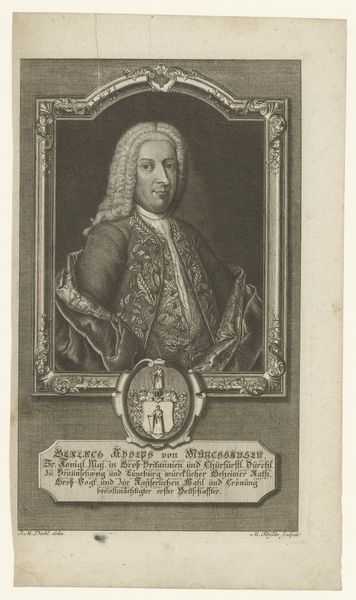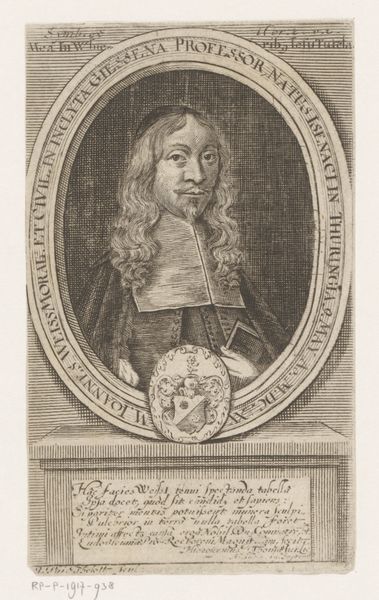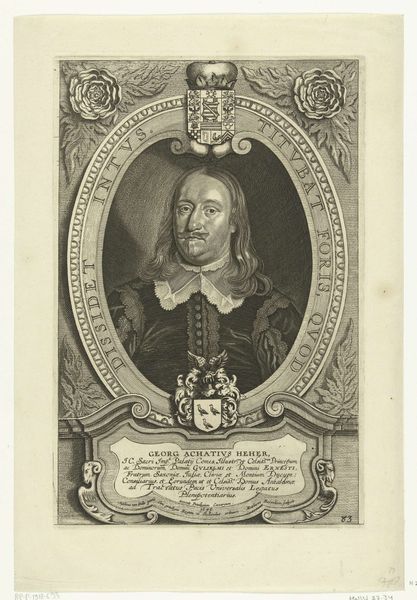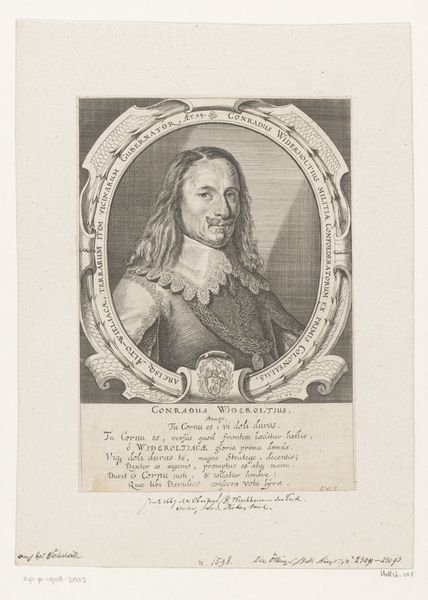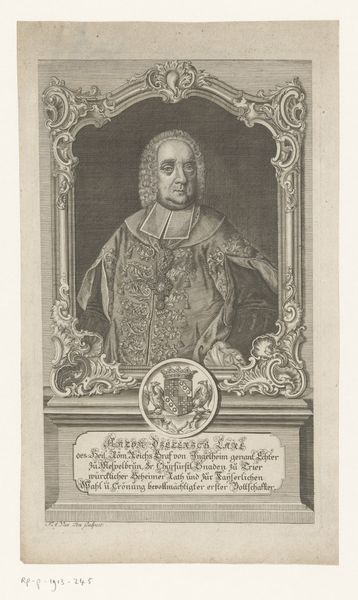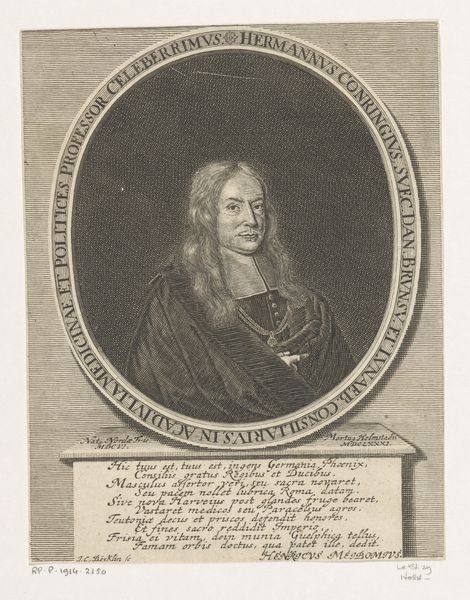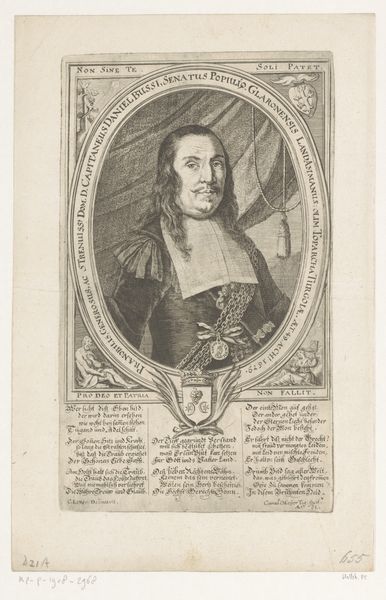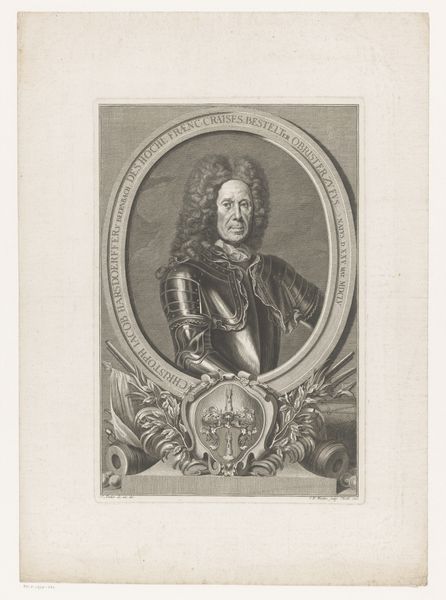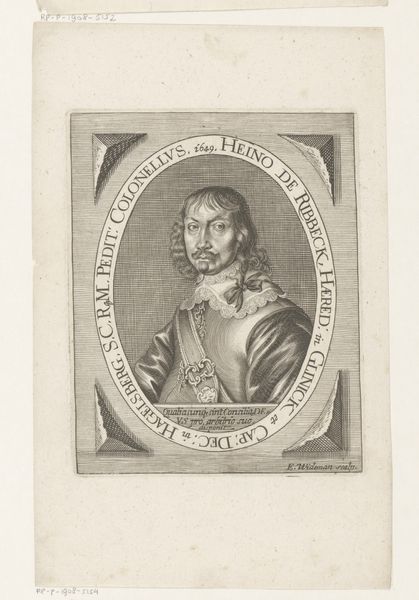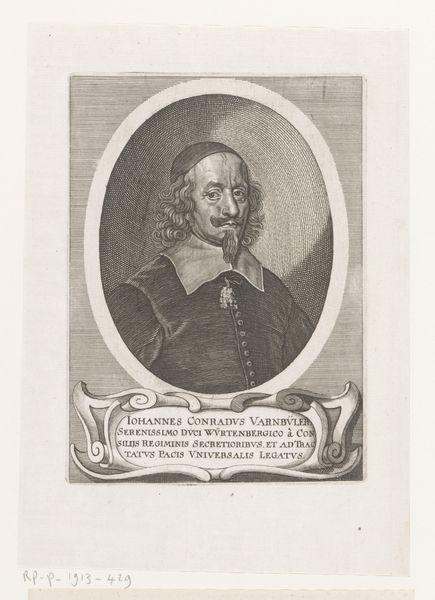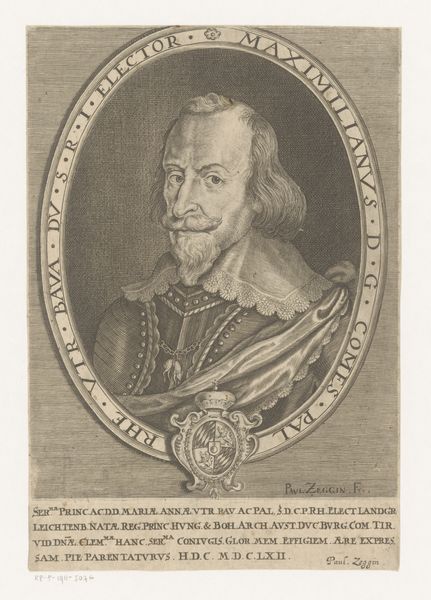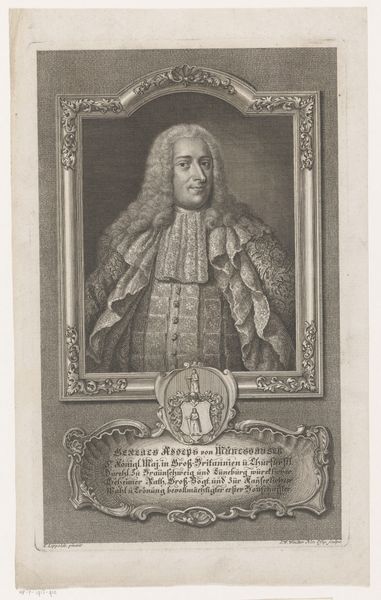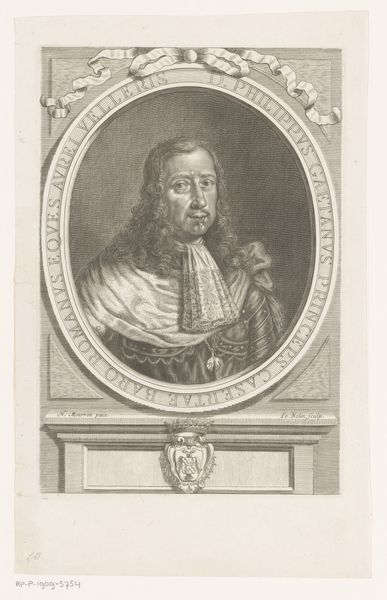
print, metal, engraving
#
portrait
#
baroque
# print
#
metal
#
figuration
#
line
#
history-painting
#
engraving
#
realism
Dimensions: height 159 mm, width 100 mm
Copyright: Rijks Museum: Open Domain
Editor: This is "Portret van Konrad Wiederhold," an engraving by Conrad Meyer, dating somewhere between 1628 and 1689. I find the formal composition interesting, the way the portrait sits within that decorative oval frame, but I’m not entirely sure what it’s communicating about the subject. How do you interpret this work? Curator: Well, consider the context. The print serves a specific function in early modern society: image-making as a form of political and social networking. Portraits like this one circulated within elite circles, solidifying relationships and projecting power. Notice how Wiederhold is identified as the Commandant of Hohen Ewiel. This isn't just about likeness; it’s about signaling status and authority within a complex power structure. Editor: So, it's less about the individual and more about the role he plays? But what about the building at the bottom, could it have some function? Curator: Precisely. Think of the portrait as a carefully constructed piece of propaganda. That architectural vignette below likely represents the fortress he commanded, further grounding him within a specific locale of power. The meticulous detail in the engraving underscores the legitimacy of his authority. Whose gaze does this print seek to capture, do you think? Editor: Hmm, so it would have been shown to other people with power… to secure alliances? Or remind others of Wiederhold’s position? Curator: Exactly! These images functioned within a specific economy of prestige. This is baroque era art. It uses realism to reinforce that position within a visual language deeply embedded in political life. Editor: That's a great point, looking at it again with the idea of circulating power in mind changes everything! Thanks. Curator: My pleasure! It’s these dialogues between the artwork, the historical context, and ourselves that makes art history so engaging.
Comments
No comments
Be the first to comment and join the conversation on the ultimate creative platform.
